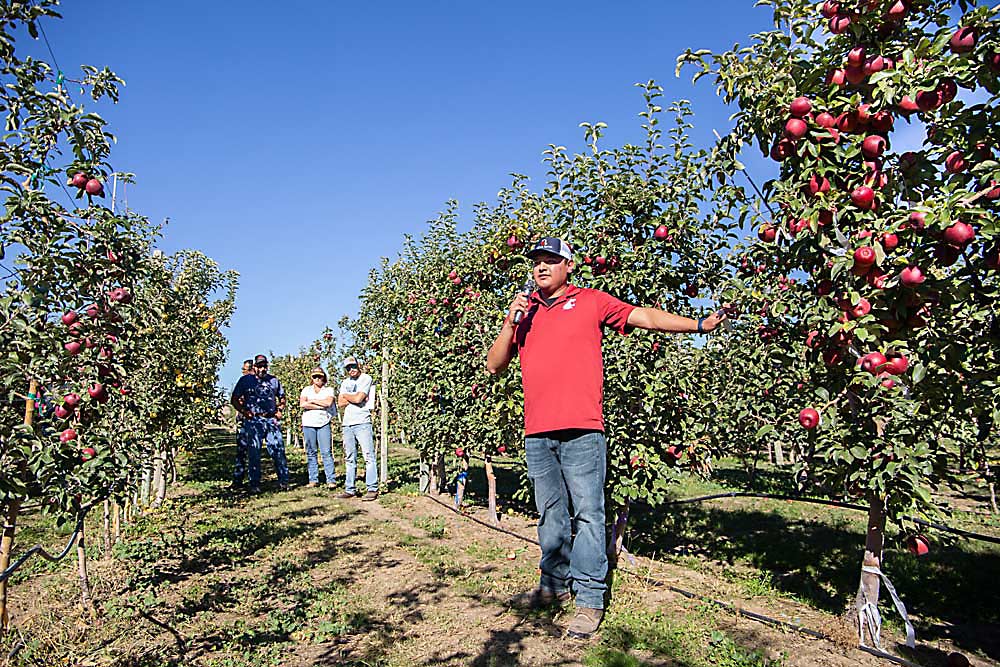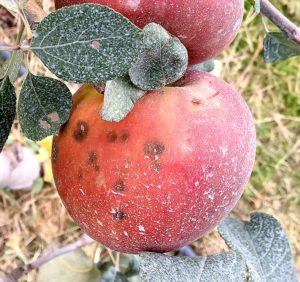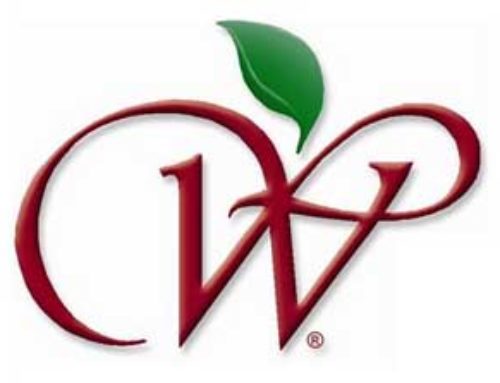
Green spot in WA 38 apples is a result of a nutrient imbalance caused in part by excess vigor. Manage the vigor and you manage green spot.
Washington State University researchers have established that.
Turns out, plant growth regulators can help control that vigor, graduate student Juan Munguía told a handful of growers on Oct. 6 at a field day in the Roza research orchard near Prosser.
In his trials, prohexadione-calcium and abscisic acid both reduced shoot growth — a measurement of vigor — by roughly 20 percent, compared to control, he said. Abscisic acid also improved fruit firmness in the trials.
The connection to green spot is fuzzier, though, he said. Treatments from three different plant growth regulators — the third was gibberellin — had no noticeable effect on green spot incidence, possibly because WSU has brought down the disorder significantly throughout the entire research orchard by curtailing nitrogen treatments and managing crop load. In 2018, green spot had a 40 percent incidence. In 2022, it was only 5 percent.
However, Munguía is confident the results showed the regulator applications helped, he said.
He used a concentration higher than normally recommended for growers. It was the same concentration as a trial involving Catarina apples in southern Brazil, where the applications successfully reduced bitter pit. Catarina apples are susceptible to bitter pit, the same nutrient imbalance disorder as green spot in WA 38.
Munguía and Bernardita Sallato, tree fruit extension specialist, also discussed nutrient management, irrigation management, pollen application trials and different pruning methods in WA 38 at the field day.
The WA 38 is the WSU proprietary apple marketed as Cosmic Crisp.
—by Ross Courtney







Leave A Comment